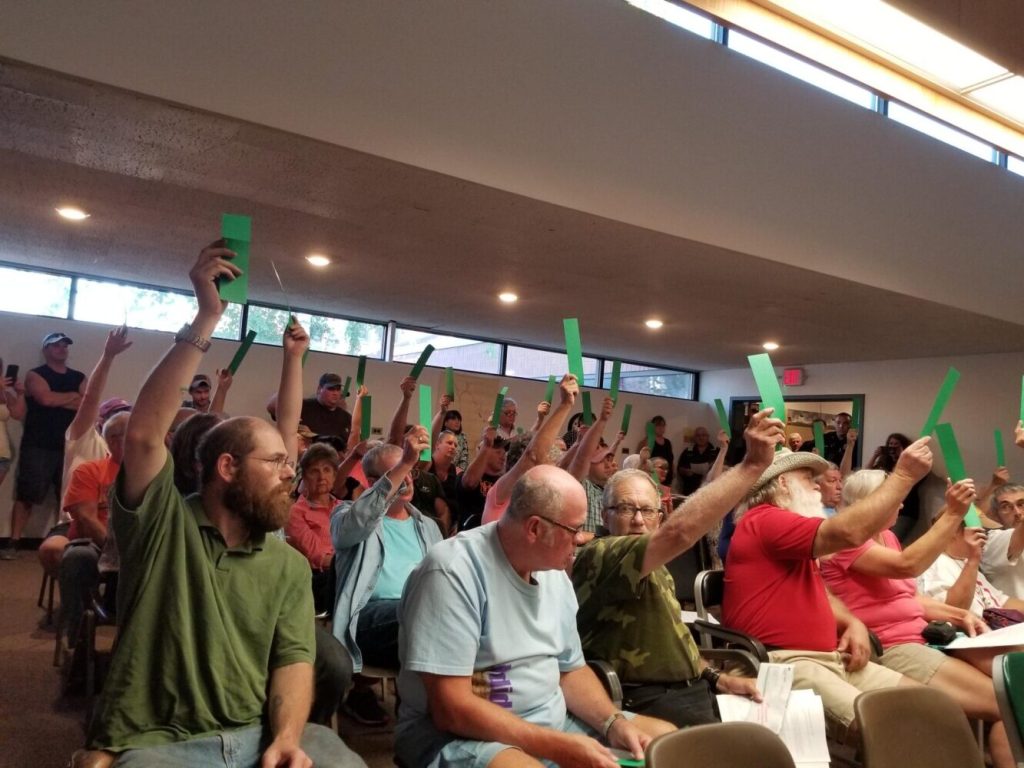I’ve written two columns expressing my opposition to allowing Central Maine Power to devastate western Maine, a place where I’ve done quite a bit of hunting and fishing and appreciated the beautiful forests, lakes, streams, mountains, sporting camps, and small towns full of friendly people.
Lots of people joined my wife Linda and me, including tourists, to drive through that area in October, enjoying the mountains, lakes, and stunning colors of the forests. And trust me, those views will never be the same if CMP plows its way through those beautiful forests and over those wonderful mountains with its pipeline project.
We all know and appreciate what makes Maine such a special place, and over the years, we have done a lot to preserve and protect the very best of Maine. I have always been proud of the work I did to help create the Land for Maine’s Future program, which has been used very effectively to protect, for all time, some of our very special places, some of which would be destroyed by the CMP project.
I was skeptical that after the Public Utilities Commission approved the project, we’d be able to stop it. But a couple of new developments have given me new hope.
The first is a discovery that a two-thirds vote of the Legislature is required to significantly change the use of state lands designated for conservation and recreation. This requirement was actually added to the Maine Constitution 25 years ago.
CMP has dismissed this, insisting that its project will not significantly change our state lands. But we all know that is incorrect.
Cathy Johnson, a lawyer with the Natural Resources Council of Maine, noted that clear-cutting an area and erecting poles and a transmission line is a physical alteration of the land that constitutes part of what is a substantial change in use. And she is very right.
If the Legislature fails to act, this requirement could result in a successful court challenge. But it is my hope that our legislators, knowing how important this is to us and to western Maine, will step up and vote to stop this project now. I encourage you to contact your state representative and senator now to urge them to act on this quickly.
Particularly appalling is that CMP is paying just under $3,700 a year to cross state land, compared to an initial payment of $1 million to cross land owned by the Passamaquoddy tribe. More recently, an easement across lands owned by Yale University will raise project costs by $950,000.
My friend Tom Saviello, a former state legislator, is a leader for groups and initiatives opposing the project. Tom was involved in many of the town votes throughout western Maine through which residents expressed strong opposition to the CMP project.
Tom is one of the leaders of the other initiative that gives me hope that the people of Maine will step up and stop this project.
Petitions are now circulating throughout the state to put this question on the ballot and let the people of Maine make the final decision. If you encounter somebody in your town circulating the petition, please sign it and give all of us the chance to make this important decision.
Now I know if this issue makes the ballot, CMP will spend millions of dollars trying to defeat it. But having worked on many referenda campaigns in my career, I’ve always had confidence that the people of Maine would make the right decisions for them and for our state.
We do know, from recent polling, that most Maine people already realize that this project is a disaster for western Maine. So if we can get this on the ballot, I am confident that the people of Maine will vote to stop this project.
And then CMP can move on to Vermont, where there are already permits for a project, though their line would have to be buried there.
George Smith can be reached at 34 Blake Hill Road, Mount Vernon 04352, or georgesmithmaine@gmail.com. Read more of Smith’s writings at www.georgesmithmaine.com.
Send questions/comments to the editors.


